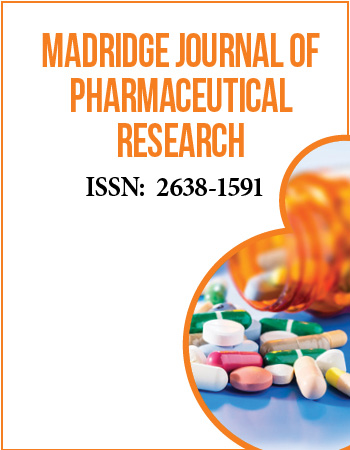2nd International Conference on Pharma & Nutrition, Health and Aging
August 1-2, 2019 Valencia, Spain
Use of Mobile Education for Sustainable Development (Esd) to Promote Solution Adoption in Rural Areas in Africa
Department of Food Science and Human Nutrition, Michigan State University, USA
The United Nations (2016) emphasizes the need for cost-effective, high-throughput education for sustainable development (ESD) as a means for getting solutions to agricultural and food security challenges around the world to people who need them. To this end, both research and experience have shown mobile phones to be the most affordable, familiar and widely used Information and Communication Technology (ICT) available for accessing and delivering critical information on agriculture, health and nutrition to people in developing countries. Everyday now in Africa, the number of mobile phone subscriptions continues to skyrocket, providing greater and greater opportunities for developing and utilizing new approaches for sharing information and knowledge.
One empirically tested way is ‘mobile ESD.’ Developed by Scientific Animations Without Borders (SAWBO) in collaboration with global and local knowledge experts, mobile ESD effectively transfers knowledge and learning gains and elicits participant solution buy-in by delivering animated, linguistically localized educational information accessible to the widest array of populations. Recently, mobile ESD demonstrated an 89% solution adoption rate two years after an initial mobile ESD video training (in Mozambique), while two studies (in Niger and Mozambique) found no statistical correlation between educational level and measured increases in learning gains delivered by mobile ESD. These findings build on many previous studies that found a majority of participants preferring mobile ESD educational experiences over other forms of knowledge delivery. In general, mobile ESD more cost-effectively secures knowledge transfer to people regardless of age, educational or technological level, gender, geographic remoteness, socioeconomic status or intersections of these factors. It has a demonstrated and immense promise for transforming the lives of people otherwise missed, overlooked or out of reach for other knowledge-delivery systems, especially women in rural areas.
Mobile ESD can spearhead educational initiatives leading to the empowerment of rural communities, especially women and youth. Beans, for instance are recognized as a principal source of protein, income and community well-being in many African countries particularly in the maintenance of good health and nutrition among women and children. Numerous impacts effect significant crop losses for farmers, through insect damage, poor storage conditions and climate change factors. This presentation highlights how mobile ESD answers the United Nationsʼ call for education for sustainable development that enhances health, agriculture and womenʼs empowerment in areas where it is most needed.
Biography:
Julia Bello-Bravo is currently an Assistant Professor in the Department of Food Sciences and Human Nutrition at Michigan State University and a co-founder and co-director of ScientificAnimations Without Borders (SAWBO). Dr. Bello-Bravoʼs research interests lie at the intersection of effective communication and education, specializing in informal education and communication strategies to reach low or non-literate learners in developing and developed countries. Areas of research include identifying, developing and deploying scalable strategies for effective educational knowledge transfer and solution uptake to the approximately 800 million low and non-literate learners globally. Much of her research involves rural areas of Sub-Saharan Africa over a dozen countries to date investigating the appeal and learning gains delivered by animated educational videos viewed on mobile phones.


